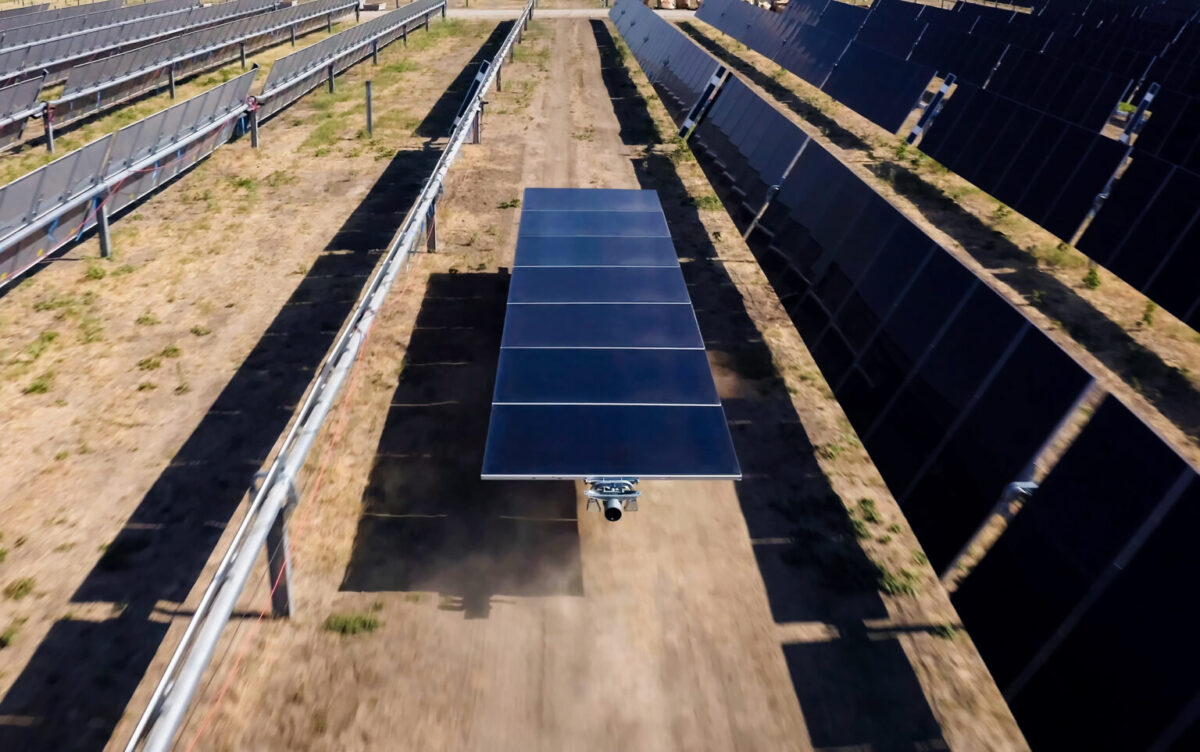From pv magazine Global
Terabase is launching Terafab, an automated utility-scale solar installation system. It describes the service as an automated “field factory” that can double installation productivity.
The installation system makes use of digital twins, logistics software, an on-site digital command center, a field-deployed automated assembly line, and installation rovers that can operate 24/7.
The company also announced the grand opening of a Woodland, California manufacturing facility; “a factory to make factories.” The facility is currently manufacturing the first gigawatt Terafab assembly line with capacity to make more than 10 GW of Terafabs per year.
Terabase said its system will double labor productivity when compared to traditional utility-scale installation methods. The system offers high-throughput, 24/7 operation, and modularity to enable rapid ramp-ups and higher solar field construction speeds, significantly reducing project schedules.
“We successfully field-tested Terafab last year, building 10 MW of a 400 MW site in Texas. Today’s launch is the next step forward to rapid commercial scale-up,” said Matt Campbell, chief executive officer and co-founder of Terabase.
Terabase has partnered with developer Intersect Power, engineering, procurement and construction firm Signal Energy, tracking hardware provider NEXtracker, and solar panel manufacturer First Solar to develop the Terafab facility.
“Not only does our partnership with Terabase bring advanced installation technology to our next-generation Series 7 solar module, but it also enables a closed-loop packaging recycling system consistent with our vision of responsible solar,” said Nick Strevel, vice president of product, First Solar. “The Terafab system is another example of how homegrown American innovation can help accelerate the deployment of solar, enabling our country’s decarbonization ambitions.”
Terafab is pegged for commercial deployment starting in the third quarter. The company said that the automated installation system reduces the levelized cost of electricity for utility-scale solar projects. It is also scalable, built on a modular design that can be replicated and deployed quickly.
Terafab reduces the physical safety risk of construction workers by eliminating the need to lift heavy solar panels and steel structures, often in harsh weather conditions, by using automation on a climate-controlled assembly line.
This content is protected by copyright and may not be reused. If you want to cooperate with us and would like to reuse some of our content, please contact: editors@pv-magazine.com.









1 comment
By submitting this form you agree to pv magazine using your data for the purposes of publishing your comment.
Your personal data will only be disclosed or otherwise transmitted to third parties for the purposes of spam filtering or if this is necessary for technical maintenance of the website. Any other transfer to third parties will not take place unless this is justified on the basis of applicable data protection regulations or if pv magazine is legally obliged to do so.
You may revoke this consent at any time with effect for the future, in which case your personal data will be deleted immediately. Otherwise, your data will be deleted if pv magazine has processed your request or the purpose of data storage is fulfilled.
Further information on data privacy can be found in our Data Protection Policy.